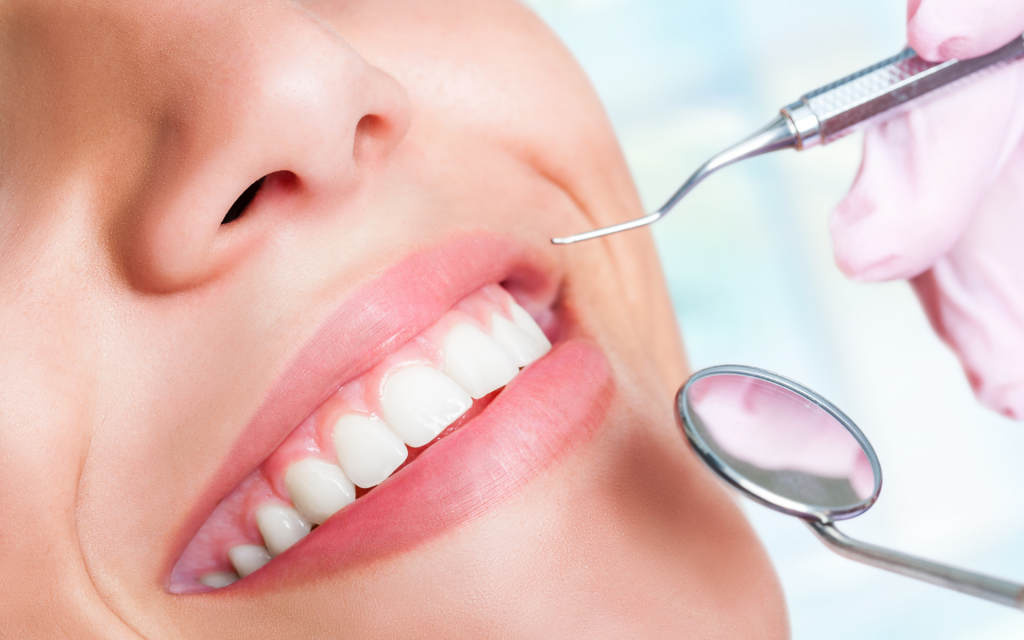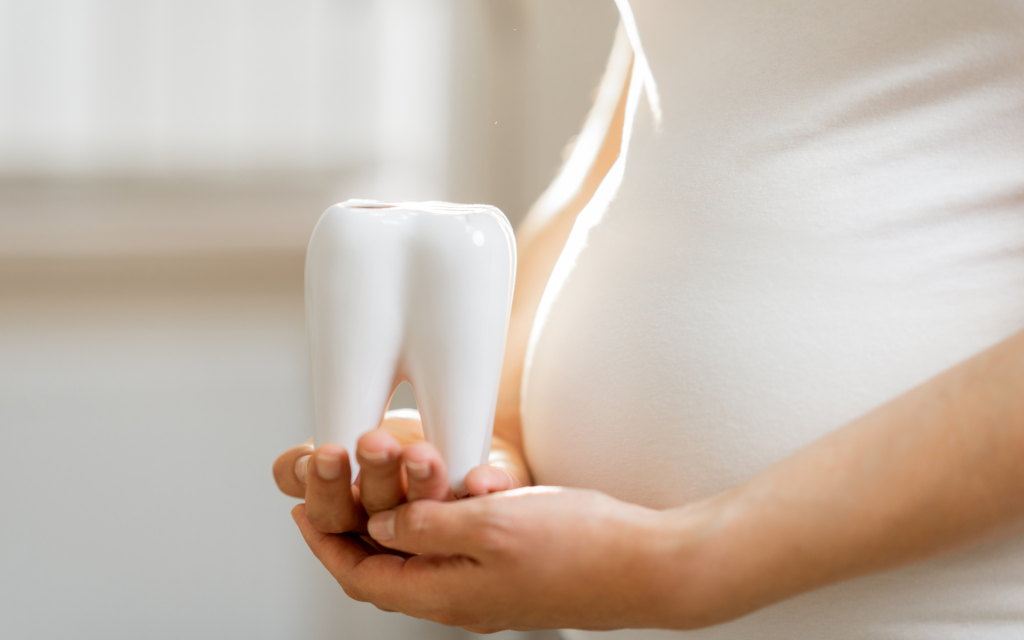Dental hygiene during pregnancy must be maintained, and special rules apply. We’d like to tell you more now, to make this special period as happy as possible.
Dental Hygiene During Pregnancy
Pregnant women need to pay particular attention to their teeth and gums during pregnancy, as there is a greater risk of gingivitis. Read on to learn why.
Good oral hygiene remains an important key, because bacteria that accumulate in the oral cavity can be passed on to the baby and adversely affect his or her health. In this case, you’ll quickly realize that paying particular attention to dental hygiene can benefit both the pregnant woman and the unborn baby.
In the same order of ideas, we recommend that you brush your teeth thoroughly, three times a day. We also suggest that you use a soft toothbrush, which is better suited to protecting your gums than a regular toothbrush. Your gums are particularly sensitive during pregnancy.
Finally, we recommend that you change your toothbrush more frequently so that bacteria don’t build up on it. As for toothpaste, it’s best to use a paste containing fluoride.
These few tips will help you maintain good oral hygiene throughout your pregnancy. But that’s not all!
Hormonal Changes, Teeth and Gums
To begin with, the hormonal changes that occur during pregnancy lead to an increase in the acid content of your saliva. Consequently, your tooth enamel becomes more vulnerable, and decay may develop more frequently. This information is important and should be taken into account at a later stage.
Even more to the point, during pregnancy, the blood in your body increases radically, causing connective tissue to loosen. As a result, the mucous membrane becomes more permeable and prone to infection.
This means that your gums will become softer, and therefore more sensitive. Your gums may bleed more frequently.
In addition, micro-organisms have easier access to them, contributing to inflammatory development, which again results in more frequent bleeding of the gums. Should this situation arise, we strongly recommend that you consult your dentist, who will be able to suggest a treatment plan.
Finally, if teeth are not properly brushed, plaque that has not been removed quickly forms gum pockets. Gingival pockets are a breeding ground for bacteria.

The Role of Minerals During Pregnancy
From the outset, mineral intake during pregnancy will contribute to good oral hygiene.
With this in mind, it’s important to make sure you’re adequately supplied with all the important minerals during pregnancy. Your calcium requirements increase because your baby needs this substance to build bones and teeth.
So, to ensure that you too can meet your needs, it’s important to make sure you get enough calcium throughout your pregnancy. This calcium intake will benefit both the pregnant woman and the baby in terms of bone development and, more to the point here, teeth.
How Often Should I Visit My Dentist During Pregnancy?
Generally speaking, there are no strict rules in this respect, but as your gums and teeth are particularly sensitive during pregnancy, in addition to regular dental hygiene, we recommend a visit to the dentist around the fourth month of pregnancy and again at the eighth month. These two visits will be sufficient to validate certain information, examine your teeth and gums and formulate recommendations for use.
These visits should be included in your pregnancy calendar, even if you have no apparent problems. The dentist is a professional who can detect inflammation and act accordingly for your health and that of your baby.
Finally, should you experience a toothache or signs of gingivitis (inflammation and bleeding), we recommend that you consult your dentist immediately so they can intervene quickly.
The team of professionals at Centre Dentaire & d’Implantologie Boucherville is available to help you right away. Make an appointment for a consultation.

